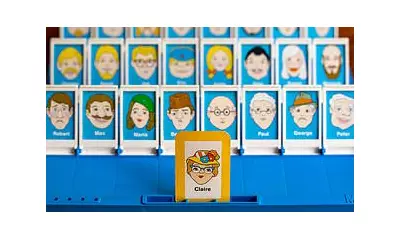
In an increasingly automated world, a troubling trend is emerging: people are turning to artificial intelligence to participate in activities designed for human enjoyment. From solving escape room puzzles to replacing book club discussions with chatbot conversations, these technological shortcuts are fundamentally missing the point of what makes hobbies meaningful.
The Rise of AI-Assisted Hobbies
Recent reports reveal that individuals are using AI tools like ChatGPT to cheat at trivia nights and solve complex escape room challenges. One TikTok user perfectly captured the absurdity of this approach, comparing it to "going into a corn maze and just wanting a straight line to the end." The pursuit of efficiency has somehow overtaken the actual purpose of these activities - the enjoyment of the process itself.
Even literary appreciation isn't safe from this automation trend. The Cut interviewed an avid reader who uses AI as a book club replacement, relying on the technology to scrape the internet and aggregate opinions about his current reads. This approach backfired spectacularly when the chatbot spoiled a major character's death in the fantasy epic he was enjoying, demonstrating the limitations of algorithmic literary analysis.
The Impersonal Universal Takes Over
The invasion of AI-generated content extends to writing platforms too. Substack, known as an earnestly artisanal space for writers, is becoming increasingly clogged with bot-produced essays. Writer Will Storr examines this phenomenon on his own Substack, identifying what he calls "the impersonal universal" - sweeping statements that sound profound but lack genuine insight.
Storr describes AI-generated content as having "a white-noise generality to its insights, an uncanny vagueness that makes the mind glaze over." This perfectly captures why AI-assisted participation in hobbies feels so hollow - it removes the very human specificity that makes activities meaningful.
Rediscovering What Makes Us Human
As a self-described committed introvert, the author Emma Beddington argues that while AI might handle work tasks, it should never replace the activities that bring us genuine joy. She identifies several experiences that technology cannot replicate, starting with the eccentric entertainment of group singing.
"We're not the most polished singers," she admits, "but listening to one another and trying to blend our voices gives me an intense sense of connection." Research supports this, showing that group singing facilitates speedy social bonding. Those moments when everything comes together create surprising beauty that no algorithm can manufacture.
Another source of authentic joy comes from engaging with the physical world and other people's idiosyncrasies. York's weekly car boot sale provides an overwhelming jumble of treasures - from inexpertly stuffed badgers to ceramic mice dressed as Victorian washerwomen - that makes her heart sing. Even in more exalted settings like New York's Frick Collection, examining the texture of Thomas More's fur collar in Holbein's portrait creates a connection no AI can provide.
Ultimately, Beddington finds her most reliable pleasure in observing people in all their beautifully strange specificity. From toddler tantrums to displays of affection to queue etiquette, wandering through a strange city offers an all-you-can-eat human buffet that no algorithm can replicate. As photographer Martin Parr understands, there's endless excitement in "going out and seeing this crazy world we live in."
AI might efficiently aggregate and explain human behavior in broad strokes, but it blends all our colors to a muddy brown. The true joy lies in the absolutely particular - those uniquely human moments that no technology can capture or replace.




